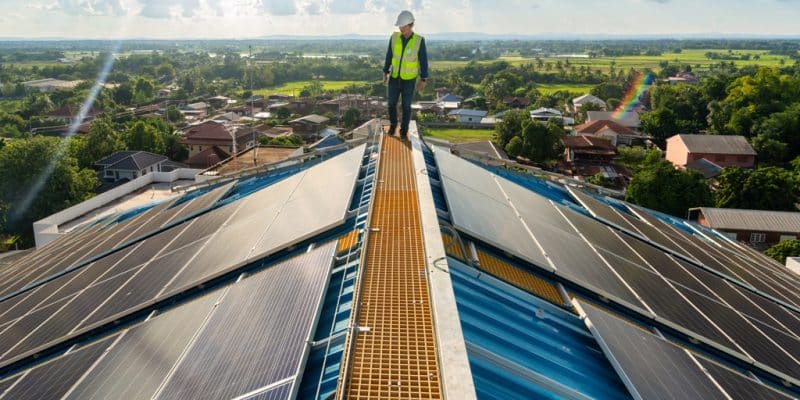At the first World Forum on Buildings and Climate, taking place on March 7 and 8 at the Congress Hall in Paris, France, the decarbonization of buildings and more sustainable construction methods will be under discussion. The event is supported by the Global Alliance for Buildings and Construction (Global ABC).
It can’t be said often enough. The building and construction sector is one of the biggest contributors to pollution, accounting for 38% of global energy-related carbon dioxide (CO2) emissions, according to the United Nations Environment Programme (UNEP). The UN agency wants to turn this situation around by encouraging the decarbonization of buildings. To this end, UNEP and the French government are co-organizing the first World Forum on Buildings and Climate, to be held in Paris on March 7 and 8.
The event will bring together ministers from 28 countries in Europe and beyond, influential real estate developers from every continent, asset managers, architects and academics. They will move forward together in discussions on the “eco-building” briefly addressed at the 28th Conference of the Parties on Climate (COP28) held in November 2023 in Dubai, United Arab Emirates (UAE).
Affordable, adequate and sustainable housing” is one of the themes to be discussed. “This workshop will explore the imperative for policymakers to design and implement housing policies that take into account the diverse realities of urban residents, with a focus on equality and inclusion,” say the organizers. The circular economy will also be given pride of place, as it is essential today in the face of rising cement prices around the world. For this reason alone, the experts recommend the use of local, bio-sourced and recycled materials (food and mining waste, for example), which provide thermal comfort.
Eco-responsible building
An entire workshop will be devoted to “construction standards and certification of the built environment”. In sub-Saharan Africa, for example, some infrastructures are built in an anarchic fashion, due to the absence or poor enforcement of a regulatory code. This often orchestrates unfortunate incidents such as the repeated collapse of buildings in the Cameroonian city of Douala.
Read also- AFRICA: What can local materials and energy efficiency do against the climate?
At the end of the two days of debates and round tables, the Chaillot Declaration will be approved by the 800 participants, with the aim of “defining a framework for international collaboration to decarbonize the building sector”. One of the key points will undoubtedly be the integration of solar electrification right from the design stage. A natural (sunshine) and practical solution to the energy challenge (load shedding, high bills) faced by many households.
For more information on the event, click here.
Benoit-Ivan Wansi







